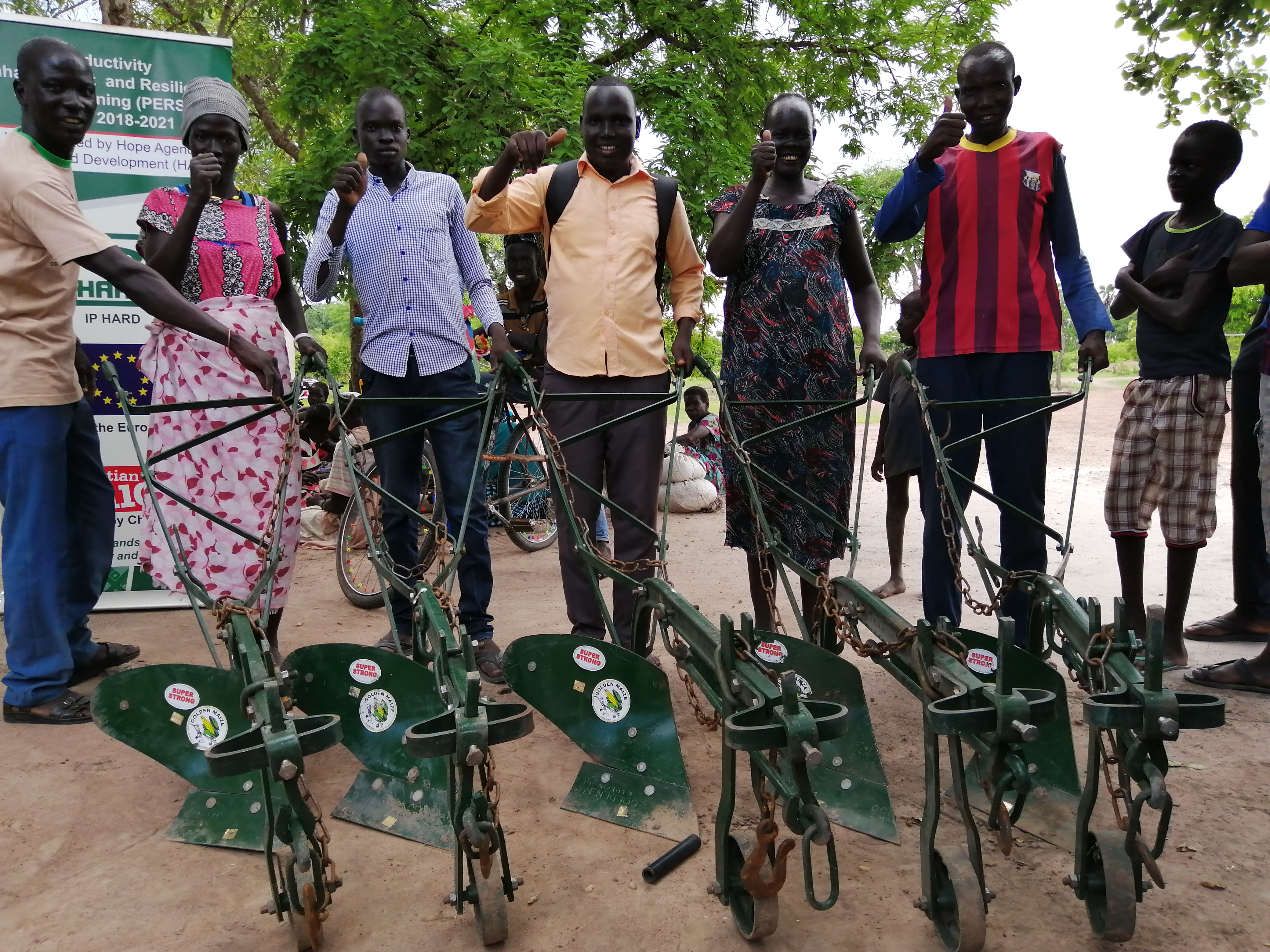
Productivity Enhancement and Resilience Strengthening
It is to be noted that Western Bhar el Ghazal (WBeG) state fall within the agriculturally fertile “ironstone livelihood zone” in South Sudan. However, years of conflict has led to limited exploitation of the full agricultural potential of the area. This has left a large section of the population in dire food insecurity and abject poverty. For instance, in January 2020, the Food Security Working Group in South Sudan released the Integrated Food Security Phase Classification (IPC) report, which, indicated that 31% of the population in WBeG State was either facing food crisis or in the emergency stage.
To accomplish its goal and objectives, the project has been strengthening community-based extension services by training local service providers – Community-Based Extension Workers (CBEWs), Community-Based Animal Health Workers (CAHWs) and local blacksmiths/artisans.
Moreover, the project is strengthening farm inputs value chain by supporting the production of seeds and tools to be locally marketed, improving of the capacity of local seed growers and tool producers (artisan). Local tool producers (artisans) will also be trained, directly supported with raw materials and linked with farmers to increase access to tools in the local markets.
Finally, to create work and livelihood opportunities to the communities, the project is supporting rural infrastructure work programmes being implemented on a cash-for-work basis. By participating in these activities, the smallholders increase their incomes, which they also use to purchase inputs, services and other necessities. The rural infrastructure assets being managed by Smallholder Organizations (SHOs) adds value to the produce, which then fetches higher market prices for improved incomes.
At the end of the project, it is expected that farmers will have sustainable access to good quality and affordable farm inputs and extension services. As well, the smallholders will have increased their incomes as a result of marketing of surplus produce, participation in construction of productive rural infrastructure, value addition and functional value chains. Finally, the project will enable the communities to adopt appropriate, improved agriculture and livestock practices and technologies.
Click here to Download PERS Project Documentation





